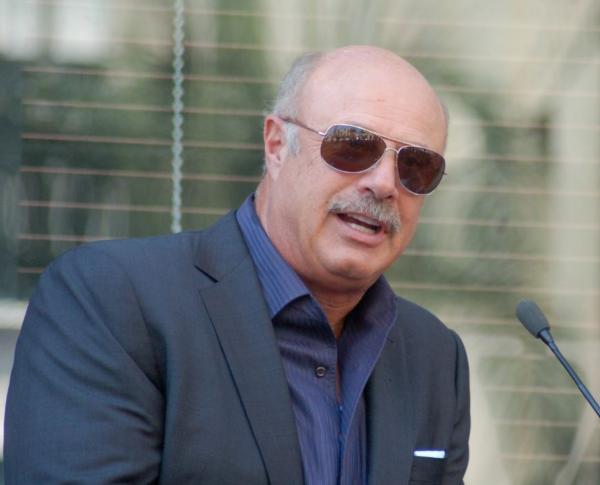Has the body positivity movement gone too far? That's the question Dr. Phil posed to me and five other panelists during an incendiary debate about the health risks of obesity on his long-running daytime talk show. As someone who has lost a significant amount of weight, I've maintained that fat acceptance is a grave threat to public health. Its advocates downplay the dangers of excessive weight gain, pressure physicians not to weigh their patients, and even lobby TV shows to promote “fat liberation.” Anybody who challenges this misguided campaign is trying to “harm” fat people and may even be motivated by racism, the body-positive brigade claims.
Several of these themes permeated the discussion on Dr. Phil, so I was grateful for the opportunity to present a science-based critique of fat acceptance to a national audience, most of whom probably aren't regular ACSH readers. Let's recap the episode and analyze some of the issues that weren't fully addressed during the episode.
Dr. Phil: The science champion!
We have to give credit where it's due. Not only did Dr. Phil give me a platform to challenge the fat-acceptance narrative, he took a firm, evidence-based stance on the issue as well. The panel also featured a physician and a nutritionist, both of whom respectfully but forcefully argued that obesity is a risk factor for several serious diseases.
Dr. Howard Liebowitz, an Emergency and Trauma Physician for over 20 years at Cedars-Sinai Hospital, explained that it's often much more difficult to care for obese patients. Some of his patients were so big, a typical CT scan machine couldn't accommodate them. He also warned that obese individuals are more likely to suffer complications following surgery. Echoing our own Dr. Chuck Dinerstein, nutritionist Kelsey Koehler stressed that fat is a metabolically active organ; the more of it you carry, the more inflammation you experience, upping your risk for insulin resistance and metabolic disease.
YouTube personality John Glaude ("Obese to Beast"), who lost 180 pounds and now coaches others through their weight-loss journeys, joined the debate as well. Opposite the activists who claim they are shamed for being overweight, Glaude pointed out that he's routinely attacked as an “ex-fat” and a traitor. His message was simple: fat people don't need to be told they're obese; they know. That said, individuals who want to lose weight can and should do it—and they deserve the same amount of respect as anyone else in this discussion.
Body-positive activists push back
Plus-size model Lexi Nimmo and her husband Will took up the body-positivity cause in the debate. They were thoughtful and well-informed, making as good a case for fat acceptance as anybody could have. Ultimately, though, they were incorrect, and that clearly came through as the episode progressed. They asserted that research linking weight gain to adverse outcomes is outdated; more recent studies indicate that overweight people are often no worse off than their slimmer counterparts.
There is a body of literature that lends support to that argument, though even some of the researchers behind that work have acknowledged that obesity amplifies the risk of all-cause mortality. Then there are the studies documenting a clear link between weight loss and improved health outcomes. If obesity exerts little or no effect on metabolic health, these results are difficult to explain.
“Middle-aged white men”
One of the issues we didn't explore in detail was Nimmo's assertion that “so many doctor's are middle-aged white men.” Presumably, the implication was that these healthcare providers are motivated by some degree of racial animus when they warn about the dangers of obesity. Dr. Phil diffused the tension with a self-deprecating joke. “Well, thank you for calling me middle-aged,” he quipped.
The audience would have seen my eyes roll if I was on camera at this point, because the medicine-is-racist trope is preposterous. For one thing, both Nimmo and her husband are white. Why weren't their opinions invalidated by their skin tone? Rules for thee, not me. Moreover, the physical attributes of any doctor are irrelevant to this discussion. Physicians are obligated to care for their patients; ignoring the risks posed by obesity would violate that obligation.
Fat acceptance isn't going anywhere, unfortunately. The push to reframe obesity as an identity instead of a health condition continues to generate headlines. The good news is that major media personalities like Bill Maher and Dr. Phil are drawing critical attention to the body positivity campaign. Hopefully, that will spark enough resistance to kill this foolish, dangerous cause before it does too much damage.




